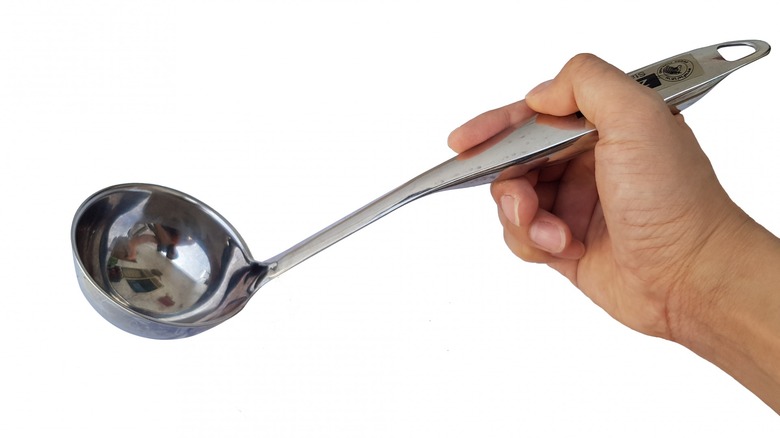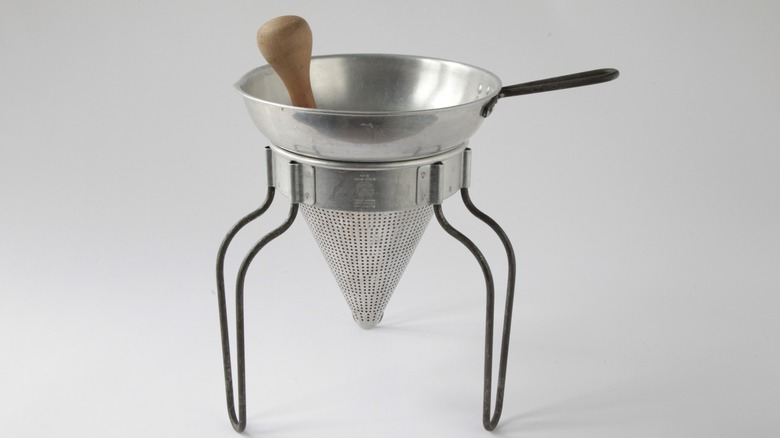When it comes to straining sauces for a smooth, professional finish, a chinois is an indispensable tool in any kitchen. For the uninitiated, a chinois is a conical sieve with an extremely fine mesh. Chefs and home cooks use it to strain custards, soups, stocks, and sauces to achieve a smooth texture. However, anyone who’s tried using one knows how passing thick liquids through the fine meshwork can be a slow and painstaking process. This is where the humble two-ounce ladle comes in as an unexpectedly helpful companion.
Its size is ideally suited to fit snugly into the cone of the chinois and it’s easy to handle. Utilizing a ladle like this gives you greater control over the straining process, significantly reducing the fatigue on your hands. This means you can strain larger batches of sauce without the process feeling like an intense arm workout. Upon comparison, a larger ladle might prove too bulky for such delicate tasks, while a spoon, on the other hand, might not have the right shape or size to do the job efficiently.
How to use a ladle when straining through a chinois

Straining through a chinois using a ladle is a simple process. The first step is to prepare your chinois by placing it over a bowl or pot, ensuring it’s securely positioned to catch the strained liquid. Then, pour your sauce or puree into the chinois. It’s advisable to do this in manageable amounts to avoid overfilling.
Now, take your ladle and begin the straining process. Gently press the sauce through the mesh using the ladle’s curved surface. This action allows you to effectively push the liquid through the mesh while simultaneously scraping the sides and bottom of the chinois. The key here is the gentle but firm pressure. Too much force can damage the chinois or create a mess, while too little pressure might not be effective.
For larger quantities of liquid or when dealing with a heavy pot, the ladle also comes in handy for transferring the liquid to the chinois. Scoop a comfortable amount of the liquid with the ladle and gently pour it into the fine strainer. This method not only eases the physical effort required but also significantly reduces the chances of spills and splashes. Once the straining process is complete, clean the chinois to remove any leftover solids before continuing with the rest of your liquid.







